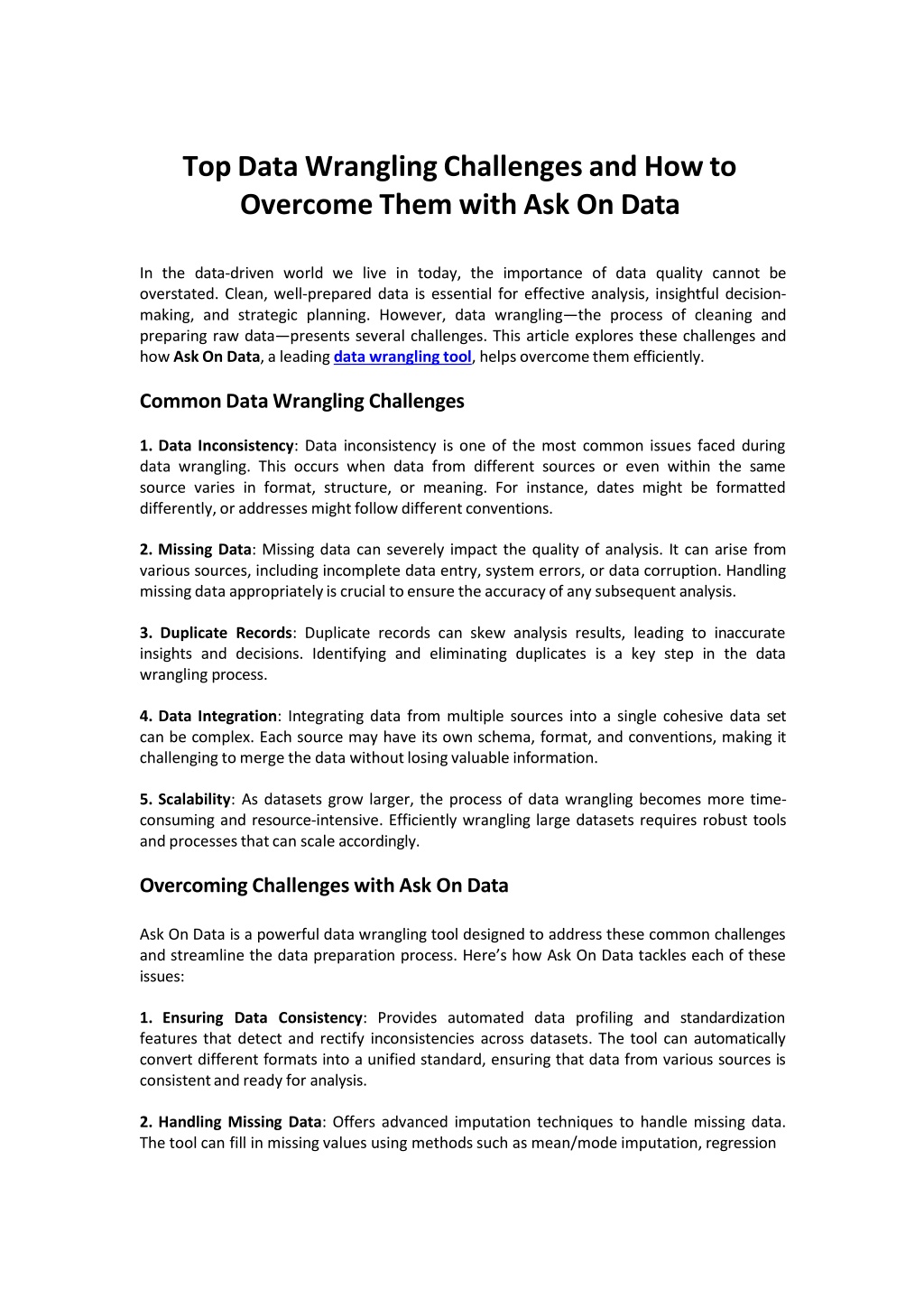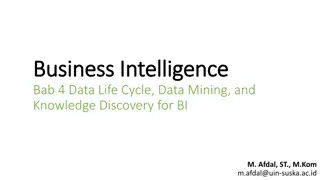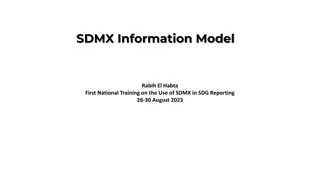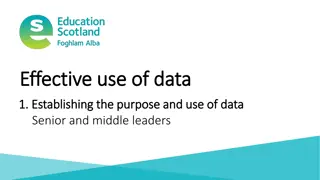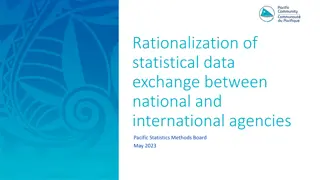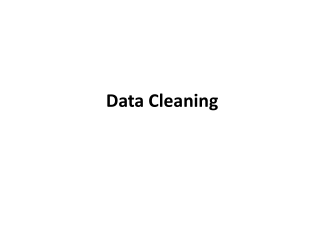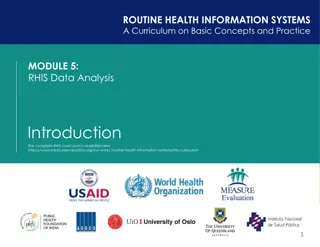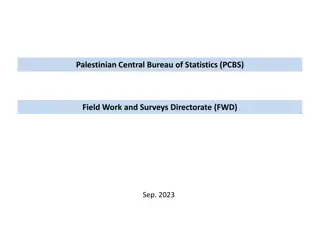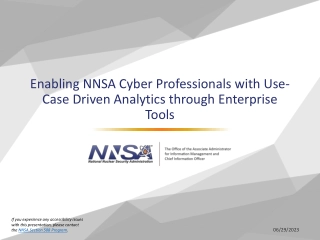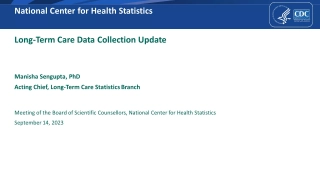Data Wrangling Challenges and How to Overcome Them
In the data-driven world we live in today, the importance of data quality cannot be overstated. Clean, well-prepared data is essential for effective analysis, insightful decision-making, and strategic planning. However, data wranglingu2014the process of cleaning and preparing raw datau2014presents several challenges. This article explores these challenges and how Ask On Data, a leading data wrangling tool, helps overcome them efficiently.
Download Presentation
Please find below an Image/Link to download the presentation.
The content on the website is provided AS IS for your information and personal use only. It may not be sold, licensed, or shared on other websites without obtaining consent from the author. Download presentation by click this link. If you encounter any issues during the download, it is possible that the publisher has removed the file from their server.
Presentation Transcript
Top Data Wrangling Challenges and How to Overcome Them with Ask On Data In the data-driven world we live in today, the importance of data quality cannot be overstated. Clean, well-prepared data is essential for effective analysis, insightful decision- making, and strategic planning. However, data wrangling the process of cleaning and preparing raw data presents several challenges. This article explores these challenges and how Ask On Data, a leading data wrangling tool, helps overcome them efficiently. Common Data Wrangling Challenges 1. Data Inconsistency: Data inconsistency is one of the most common issues faced during data wrangling. This occurs when data from different sources or even within the same source varies in format, structure, or meaning. For instance, dates might be formatted differently, or addresses might follow different conventions. 2. Missing Data: Missing data can severely impact the quality of analysis. It can arise from various sources, including incomplete data entry, system errors, or data corruption. Handling missing data appropriately is crucial to ensure the accuracy of any subsequent analysis. 3. Duplicate Records: Duplicate records can skew analysis results, leading to inaccurate insights and decisions. Identifying and eliminating duplicates is a key step in the data wrangling process. 4. Data Integration: Integrating data from multiple sources into a single cohesive data set can be complex. Each source may have its own schema, format, and conventions, making it challenging to merge the data without losing valuable information. 5. Scalability: As datasets grow larger, the process of data wrangling becomes more time- consuming and resource-intensive. Efficiently wrangling large datasets requires robust tools and processes that can scale accordingly. Overcoming Challenges with Ask On Data Ask On Data is a powerful data wrangling tool designed to address these common challenges and streamline the data preparation process. Here s how Ask On Data tackles each of these issues: 1. Ensuring Data Consistency: Provides automated data profiling and standardization features that detect and rectify inconsistencies across datasets. The tool can automatically convert different formats into a unified standard, ensuring that data from various sources is consistent and ready for analysis. 2. Handling Missing Data: Offers advanced imputation techniques to handle missing data. The tool can fill in missing values using methods such as mean/mode imputation, regression
models, or machine learning algorithms. Alternatively, it can flag missing data for further review, ensuring that no critical gaps are overlooked. 3. Eliminating Duplicate Records: The duplicate detection and removal features are highly efficient. The tool employs sophisticated algorithms to identify duplicates based on various criteria and offers configurable options for merging or eliminating these records. This ensures a clean,duplicated data set. 4. Facilitating Data Integration: Excels at data integration, allowing users to merge datasets from different sources seamlessly. Its robust data mapping capabilities enable the alignment of different schemas and formats, ensuring that all relevant data is cohesively integrated into a single data set. 5. Scalability and Performance: Designed to handle large datasets with ease. Its scalable architecture ensures that data wrangling processes remain efficient even as data volumes grow. The tool leverages parallel processing and optimization techniques to minimize processing time and resource usage. Additional Features of Ask On Data 1. User-Friendly Interface: Offers an intuitive, user-friendly interface that simplifies the data wrangling process. Users can easily navigate through the tool s features and functionalities, reducing the learning curve and increasing productivity. 2. Advanced Analytics Integration: The tool seamlessly integrates with popular analytics platforms, enabling users to transition smoothly from data wrangling to analysis. This integration ensures that cleaned and prepared data can be quickly utilized for generating insights. 3. Customizable Workflows: Allows users to create and customize workflows tailored to their specific needs. This flexibility ensures that the tool can adapt to various data wrangling scenarios and business requirements. 4. Robust Security: Security is a top priority for Ask On Data. The tool ensures that all data is handled securely, with robust encryption and access controls to protect sensitive information. Conclusion Data wrangling is a critical step in the data analysis process, and overcoming its challenges is essential for deriving accurate insights. Ask On Data offers a comprehensive solution to these challenges, providing automated, scalable, and efficient tools for data cleaning, integration, and preparation. By leveraging Ask On Data, businesses can ensure their data is consistent, accurate, and ready for meaningful analysis, ultimately driving better decision- making and strategic planning.
